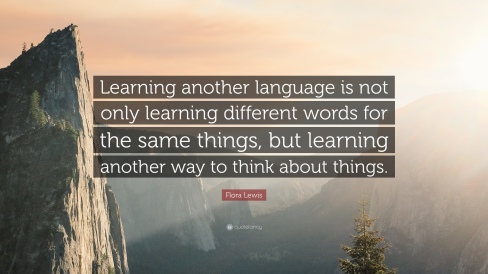I occasionally get messages from students taking a foreign language (specifically Spanish) asking how to become fluent. There is no one-track, follow-these-3-steps guarantee to gaining fluency but with a few years of study and practice it’s doable so I thought I’d share some tips that helped me on my journey to fluency in Spanish. (and ones I’m using currently, although not-so-consistently, to learn Arabic)

Language learning is a lifelong journey. We never stop expanding our vocabulary in any language, whether it’s our native tongue or not.
Three messages I’ve gotten recently:
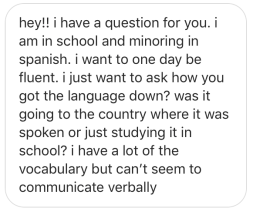
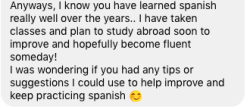
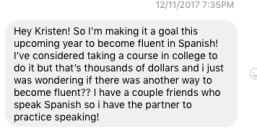
The best learning “tactic” you can have is the desire to learn. My personal motivation was traveling to Honduras as a teen and realizing the need to be able to communicate with the people there. If you want more convincing check out the infographic below about the benefits of a bilingual brain.
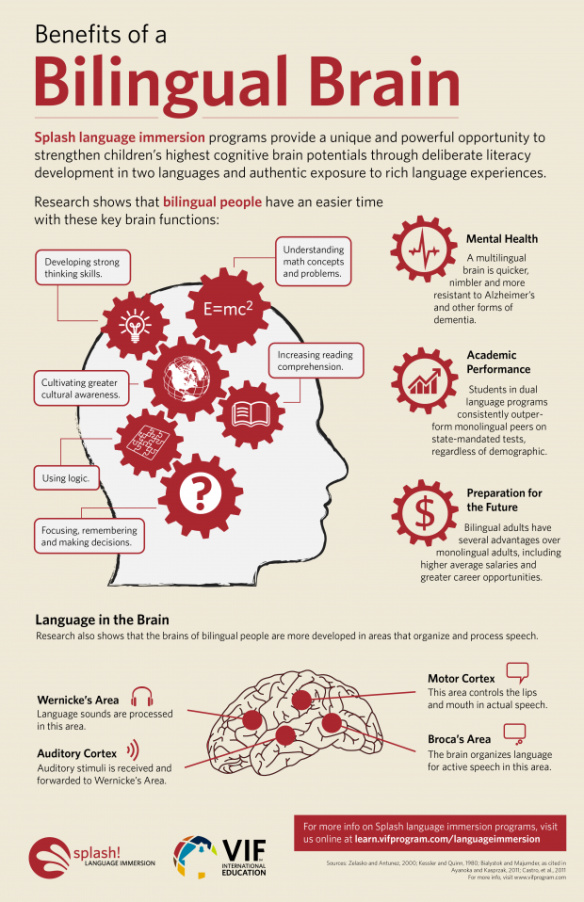
Either way, find your why and your language journey will be so much more meaningful and will be what gets you through the lulls and moments when you feel overwhelmed.
That brings me to my next point… you will feel overwhelmed and like you want to give up and like you’re in over your head and oh-my-gosh-I’ll-never-get-the-hang-of-this-language, why-does-everyone-understand-except-me! I can’t tell you the times I walked into my college Spanish classes with sweaty palms and an abnormally high heart rate. It can be nerve wracking and I think a lot of people give up right around that time. But that is exactly where you have to push on through.
Learning a language will only happen for those who don’t mind looking foolish. If you are self-conscious about how silly you might sound then chances are it will be much  more of a struggle. Because here’s some news: YOU WILL SOUND RIDICULOUS. You will. There is no getting around the fact that as a language learner (LL) you are going to mispronounce words and use the incorrect verb tense and just flat out say things you didn’t mean to say like one time when I told someone I had “a horse in my bathroom.”
more of a struggle. Because here’s some news: YOU WILL SOUND RIDICULOUS. You will. There is no getting around the fact that as a language learner (LL) you are going to mispronounce words and use the incorrect verb tense and just flat out say things you didn’t mean to say like one time when I told someone I had “a horse in my bathroom.”
*Things to keep in mind
- Receptive language (comprehension) is typically developed before expressive language. I hear so many LL’s say, “I understand most of what they say! I just can’t answer back!” That’s normal.
- It’s very unlikely that you will go from zero to fluent in just a year’s time. Allow yourself plenty of time to learn the language and don’t beat yourself up about what feels like slow progress. It’s hard to put a time limit on language proficiency because there are so many factors and we all learn differently.
- You’ll probably have to invest financially. To learn a language you have to be intentional with your time and money. (but I hope through this blog post to give you some money- and time-saving tips you can use on your way to fluency)
- There are four parts to learning a language: hearing, speaking, reading, writing. Make sure you are practicing all four!
Once you’ve discovered your motivation and accepted the fact that there will be moments when you will feel like giving up and that you will occasionally sound dumb, let’s talk about some practical ways to start and/or supplement your language studies.
- Take a class. I’ve known people who have become fluent just by immersion (see below) but if you live in a country where the target language is not prevalent (U.S.) you need to start here with some kind of formal class with an instructor, preferably one you can interact with, not an online class.
- Immersion. Whereas the class will give you the foundation for grammar, vocabulary, basics of pronunciation; immersion is the best and fastest way to become conversational and then fluent. It is suggested to have some formal training in the language before this step. Immersion is best carried out by traveling to the country or culture where your target language is spoken in every day life. This works best if you surround yourself with individuals who do not speak your first language. (and/or marry one of them like I did!)
- Practice outside of class time. IF you have the desire to learn you will have the desire to practice. (which is how I knew I desired speaking Spanish more than I desired playing the piano when I was younger) 😉 And if you have a busy schedule like I imagine you do, there are ways to multi-task while practicing a language.
- I used to listen to Coffee Break Spanish podcasts while cleaning and doing laundry. (recently I’ve checked out Pimsleur language program CDs from my local library as I’m trying to learn Arabic and I love their teaching method. I’ll listen to them in the car.)
- In high school I found a local Spanish language newspaper that I would pick up occasionally to try to read. I’d mark words I recognized and try to figure out the gist of the story. Most local libraries also have children’s books in Spanish.
- Watching cartoons (for me, it was old Disney movies) that you know the characters and storyline will help give you confidence in the language and you won’t feel as lost as you hear the foreign words. It’s exciting the first time you start recognizing words or phrases and can understand their context in the story.
- Listen to music. Many popular songs in English are translated to Spanish but just remember that most are not translated word for word. A couple artists I would listen to were Kari Jobe and Hillsong in Spanish. Having music or the TV on in the background as you do other things is helpful even if you aren’t directly paying attention. It is training your ear to the sounds of the language whether you are conscious of it or not and is an easy way to learn popular phrases.
- Make friends with speakers of your target language! I would keep in touch with friends in Honduras but I also got involved in a tutoring ministry during college based in a neighborhood of majority Mexican and Guatemalan families. Building relationships with these families face to face made me feel comfortable trying to speak their language and motivated me even more.
- Apps on your phone are great tools to aid in language learning. Google translate
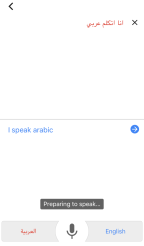 can be used in various helpful ways, (not in translating large texts) for example I use it to “test” my pronunciation in Arabic by using the mic and speaking a phrase I’ve learned and then seeing if it understands me. DuoLingo is fun because it sets up language lessons as a game that covers the four areas: hearing, speaking, reading, writing. It keeps up with your level, lets you set personalized goals, and sends you reminders to practice. This app now offers courses for over 60 languages! (which is crazy distracting for someone like myself who probably has Language Learning ADD) I like the Spanish Dictionary app which works as a simple English-Spanish dictionary but also has vocabulary trivia, important phrases listed by category, and a Word of the Day feature. Mango is another good program offered by some local libraries. A good supplemental website for Spanish (that still doesn’t have an app to my knowledge) is StudySpanish.com – there are good grammar explanations, verb drills, quizzes, audio of speakers from different Spanish speaking countries to hear the difference in accents.
can be used in various helpful ways, (not in translating large texts) for example I use it to “test” my pronunciation in Arabic by using the mic and speaking a phrase I’ve learned and then seeing if it understands me. DuoLingo is fun because it sets up language lessons as a game that covers the four areas: hearing, speaking, reading, writing. It keeps up with your level, lets you set personalized goals, and sends you reminders to practice. This app now offers courses for over 60 languages! (which is crazy distracting for someone like myself who probably has Language Learning ADD) I like the Spanish Dictionary app which works as a simple English-Spanish dictionary but also has vocabulary trivia, important phrases listed by category, and a Word of the Day feature. Mango is another good program offered by some local libraries. A good supplemental website for Spanish (that still doesn’t have an app to my knowledge) is StudySpanish.com – there are good grammar explanations, verb drills, quizzes, audio of speakers from different Spanish speaking countries to hear the difference in accents.
Happy language learning! It is quite an adventure. ❤
What advice do you have for language learners?

